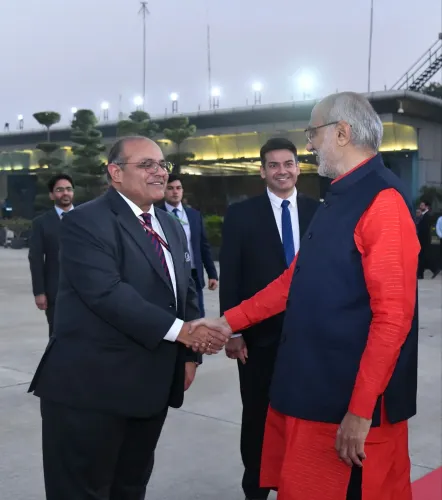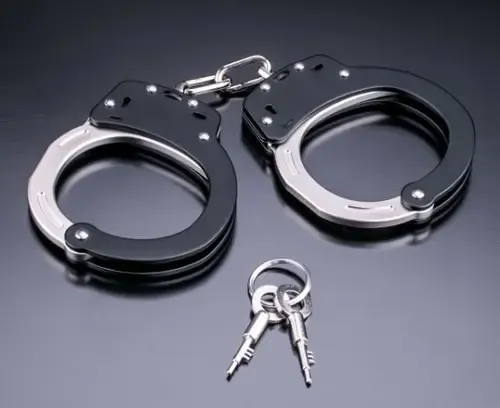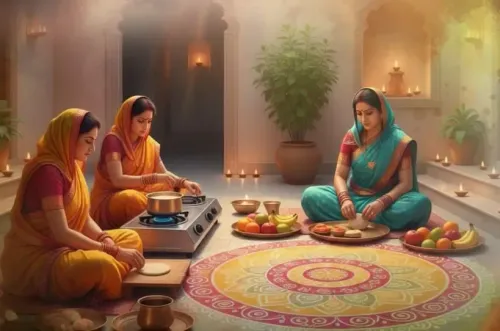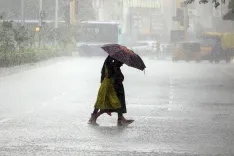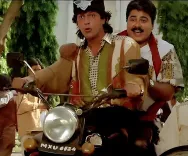What Discussions Did JPC Have with Maharashtra's Legislative Leaders on the ONOE Bill?
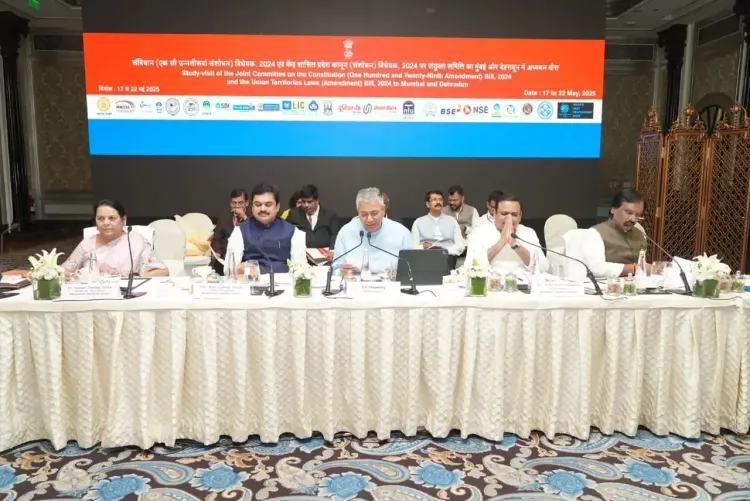
Synopsis
Key Takeaways
- Joint Committee discussions on ONOE bill
- Engagement with various stakeholders
- Exploration of constitutional challenges
- Potential benefits for women candidates
- Emphasis on electoral efficiency
Mumbai, May 19 (NationPress) The Joint Committee on the Constitution (129th Amendment) Bill, 2024, along with the Union Territories Laws (Amendment) Bill, 2024, chaired by Lok Sabha member P.P. Chaudhary, convened on Monday to deliberate on the topic of simultaneous elections. The committee engaged in discussions with the presiding officers of both the Legislative Assembly and Legislative Council of Maharashtra.
Additionally, they met with Maharashtra's Chief Minister Devendra Fadnavis to discuss the One Nation One Election (ONOE) bill.
The committee examined various challenges—constitutional, logistical, and consequential—pertaining to the process of conducting simultaneous elections. They also reviewed the Anti-Defection Law and the Tenth Schedule of the Constitution, focusing on government stability, as per a state government release.
In their discussions, the committee consulted representatives from numerous institutions, including the Bar Council of Maharashtra and Goa, Bombay High Court Bar Association, MNLU Mumbai, NSE, BSE, MACCIA, and the Maharashtra Agro-Industries Development Corporation, to assess the implications of the Bills. They scrutinized key issues like legal viability and the anticipated economic benefits stemming from the policy certainty that a stable executive could provide.
Several stakeholders pledged to conduct further in-depth analyses on different facets and implications of simultaneous elections, vowing to present their findings to the committee to bolster its recommendations.
Among those who shared insights was filmmaker Madhur Bhandarkar, who addressed the challenges the film industry faces due to frequent elections.
During a meeting with the JPC, Maharashtra Legislative Council deputy chairperson Neelam Gorhe emphasized the need for an objective perspective when discussing joint elections and the powers of the Election Commission. Other notable attendees included state council chairman Ram Shinde, state assembly speaker Rahul Narvekar, and leader of the opposition in the state council Ambadas Danve.
Gorhe stated, “Conducting the Lok Sabha and Assembly elections together will reduce election costs and prevent stagnation of developmental works due to the code of conduct. There have been constructive discussions within the committee on this matter.”
She highlighted the significance of the proposals in the bill against the backdrop of 50% reservation for women, asserting that it would provide opportunities for economically disadvantaged yet capable candidates. Responding to calls for using ballot papers in elections, she said, “Instead of showing distrust in the electoral system, we should focus on enhancing its efficiency.”
Moreover, she pointed out the provision for holding local body elections within 100 days of the Lok Sabha and Assembly elections, mentioning that copies of the pertinent laws have been distributed to all members. “Everyone must be vigilant against spreading misinformation,” she cautioned.

